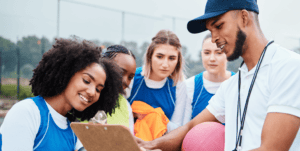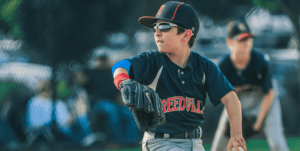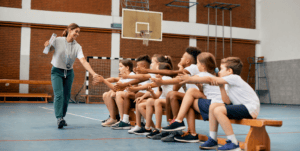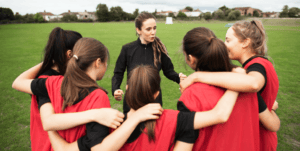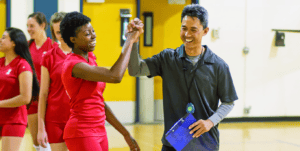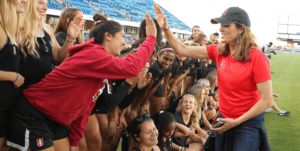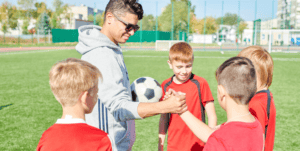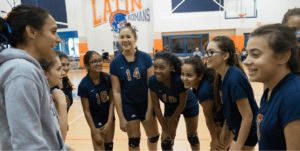Webinar Recap: Pride in Play – A Conversation on Identity, Advocacy, and the Future of Sports
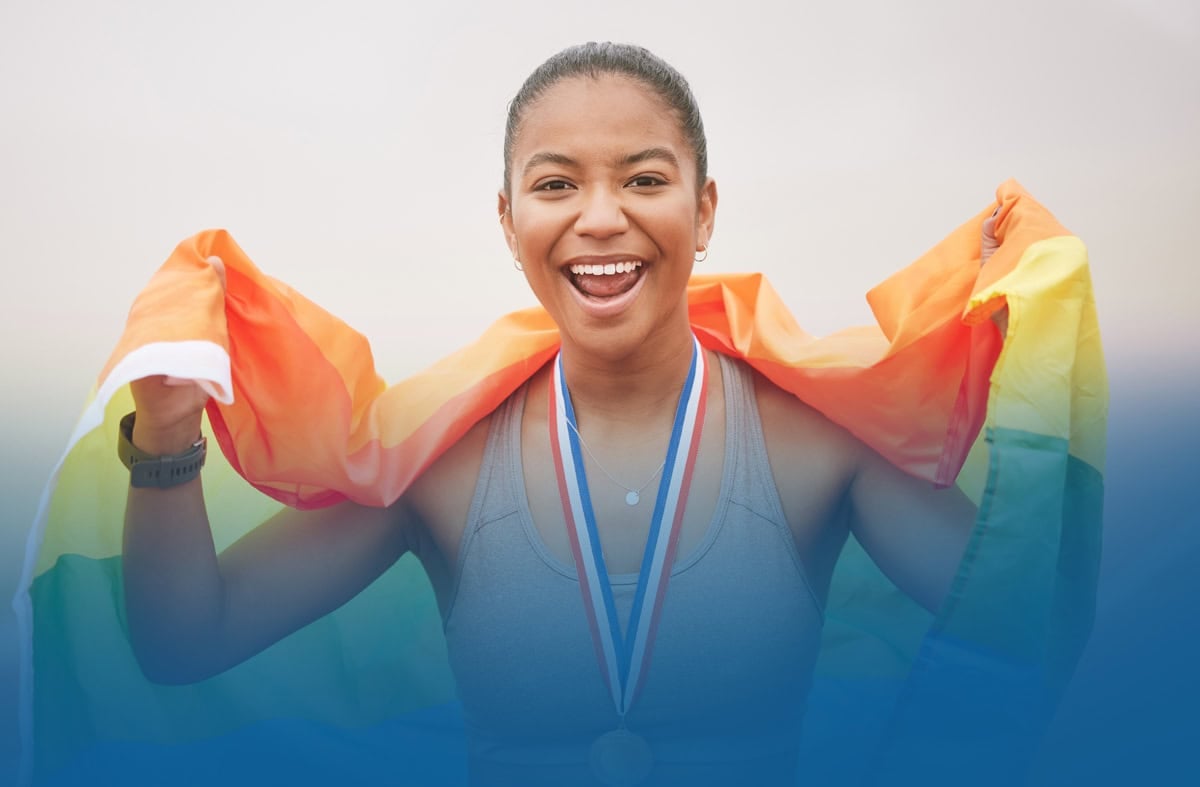
07.25.25
On June 26, 2025, the Positive Coaching Alliance hosted “Pride in Play: The Intersection of Identity, Sports, and LGBTQ+ Advocacy”, a conversation that brought together four leaders working at the forefront of inclusion in athletics. From community sports to professional leagues, from locker rooms to law clinics, these changemakers are shaping a future where all athletes feel safe, seen, and valued.
Moderated by Daycia McClam, the panel featured Kirk Walker (UCLA Softball and Equality Coaching Alliance), Lindsay Kauffman (Girls Unite), Kaig Lightner (Quantum Gender and Portland Community FC), and Maya Satya Reddy (The Sports Project at Harvard Law’s LGBTQ+ Advocacy Clinic). What followed was a powerful and practical dialogue about identity, visibility, and the growing movement for inclusion in sports.
Here are some of the key takeaways from the conversation, offering both insight and inspiration for coaches, leaders, and advocates across all levels of sport.
Identity informs leadership.
- Coaches shared how their lived experiences shape how they build team culture, lead with authenticity, and create spaces where others feel safe to be themselves.
Authenticity builds connection.
- When coaches bring their full selves to the role, it gives athletes permission to do the same—fostering trust, belonging, and mutual respect.
Advocacy happens at every level.
- Inclusion isn’t just personal—it’s structural. Change requires both individual action and institutional shifts in policy, language, and culture.
Today’s athletes are setting the pace.
- Young people are demanding more inclusive environments. Coaches can no longer opt out—they must be active learners, responsive to evolving needs and expectations.
Representation and visibility matter.
- Symbols of inclusion—like team statements or visible gestures—can be powerful when followed by meaningful action. Even small steps, when rooted in sincerity, can open the door to deeper change.
Social media is a key connector.
- For many young people, digital spaces provide critical sources of representation, community, and validation that may be missing elsewhere.
And while there was a celebration of progress, the panel was clear that mistakes are part of the process. What matters, they agreed, isn’t perfection, it’s willingness to own harm, apologize, and grow.
The conversation ended with a call to action not just for more inclusive coaching, but for bolder collaboration. The work of building safe and affirming sports spaces is ongoing, and it requires everyone: athletes, coaches, parents, and policy leaders, whether you’re shifting policies, showing up visibly as an ally, or simply listening and learning, your role matters.
If you weren’t able to attend or want to revisit the conversation, the full recording is available below. You’ll also find ways to connect with the panelists and explore the resources they recommend.
We invite you to dig deeper and learn more about our panelists’ organizations, upcoming events, and resources. They can be reached at:
Kirk Walker: kwalker@athletics.ucla.edu
Lindsay Kauffman: soccer@girlsunite.org
Kaig Lightner: kaig@quantumgender.com
Maya Satya Reddy: maya.redds@gmail.com
What did you think? We encourage your feedback and suggestions for additional webinar topics, resources, and support:
